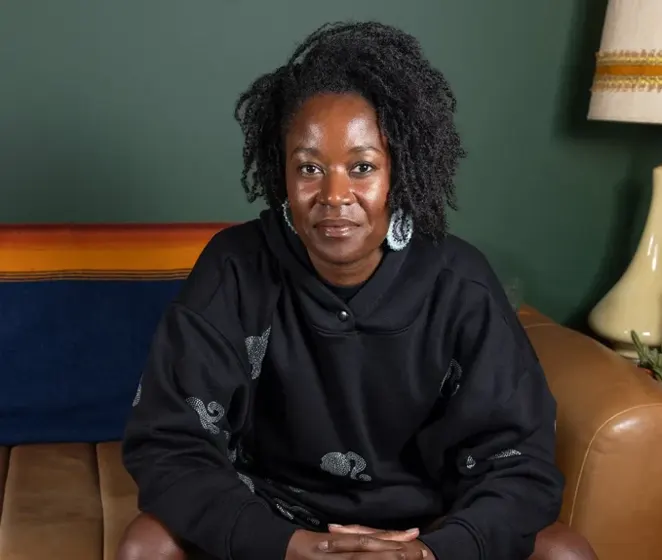By Intentional Spaces Psychotherapy
Parenting children and adolescents can be one of life’s most rewarding experiences, offering moments of joy, growth, and connection that are deeply fulfilling. At the same time, it can present a series of unique and sometimes unexpected challenges, particularly when a child consistently displays defiance, argumentative behavior, or persistent oppositional tendencies. While occasional rebellion is a typical and even healthy part of growing up, an expression of emerging independence and self-assertion, chronic oppositional behavior can ripple through every area of family life, impacting home dynamics, school performance, and peer relationships.
These behaviors can leave parents feeling overwhelmed, frustrated, or unsure about how to respond, sometimes leading to self-doubt about their parenting approach or concerns about whether they are adequately supporting their child’s emotional needs. Understanding the underlying roots of oppositional defiant behavior, recognizing the early warning signs before they escalate, and learning practical, compassionate strategies for intervention can make a profound difference, not only in managing challenging behaviors but also in fostering a child’s emotional growth, resilience, and capacity for healthy relationships. This blog aims to explore these topics in depth, offering guidance, insights, and practical tools for caregivers navigating the often-complex journey of raising a child with oppositional tendencies while maintaining connection, empathy, and hope.
What Is Oppositional Defiant Disorder (ODD)?
Oppositional Defiant Disorder, commonly referred to as ODD, is more than just typical backtalk or a phase of teenage rebellion. It is a consistent pattern of angry or irritable moods, argumentative or defiant behavior, and vindictiveness that lasts for at least six months and occurs across multiple settings, including home, school, and social environments. Children with ODD often engage in behaviors such as frequent temper tantrums, arguing with adults, actively refusing to comply with rules or requests, deliberately annoying others, or blaming others for their mistakes. It’s also worth noting that ODD is a relatively uncommon diagnosis for children or teens, and if you suspect your child’s behavior may align with ODD you should consult a licensed professional.
ODD behaviors may initially appear intentional or manipulative, but they are often rooted in difficulties with emotional regulation, coping with stress, or processing overwhelming feelings. Left unaddressed, these patterns can interfere with a child’s academic performance, social development, and self-esteem, and they may even create tension within the family unit. Recognizing these behaviors as signs of underlying struggles, rather than simply “bad behavior”, is a critical first step in providing support and creating meaningful change.
Understanding the Roots of ODD
Oppositional defiant behavior rarely emerges in isolation. Research suggests that a combination of biological, psychological, and environmental factors contributes to its development. Neurological differences, such as variations in brain areas responsible for impulse control and emotional regulation, may predispose some children to greater difficulty managing frustration or controlling reactions. Additionally, genetic factors, including a family history of behavioral or mood disorders, may play a role in how children process emotions and navigate stress.
Environmental and relational dynamics are equally influential. Inconsistent discipline, harsh punishment, chaotic home environments, or high levels of family stress can reinforce oppositional behaviors, creating a cycle that feels impossible to break. Trauma, neglect, or significant life transitions can also contribute, as children learn to express their distress through defiance or control-seeking behaviors. Understanding these underlying factors can help caregivers approach the child with empathy, rather than frustration, and guide interventions that address the root causes rather than just the symptoms.
Practical Strategies for Caregivers
Although managing oppositional behavior can feel overwhelming, there are practical, evidence-based strategies that parents and caregivers can use to support children with ODD.
- Set Clear and Consistent Expectations
Children with ODD benefit from structured environments in which rules, expectations, and consequences are clearly defined and consistently enforced. When boundaries are predictable, children feel safer and understand the expectations for their behavior. This clarity reduces confusion and can prevent situations from escalating into power struggles. - Positive Reinforcement Over Punishment
While it may be tempting to focus on correcting negative behavior, emphasizing positive reinforcement can be more effective in the long term. Acknowledge and reward desirable behaviors, even small ones. Praise efforts to comply, moments of cooperation, or constructive problem-solving. Over time, these reinforcements can shift attention away from misbehavior and toward skill-building. - Model Calm, Respectful Communication
Children learn by observing adults. Demonstrating patience, calmness, and respectful dialogue can provide a template for how to handle conflict without aggression. Avoiding reactive arguments or confrontations prevents escalation and creates space for more constructive interactions. - Teach Emotional Awareness and Coping Skills
Helping children identify and label their emotions is crucial. Techniques like deep breathing, mindfulness exercises, journaling, or guided reflection can equip children with tools to manage frustration, anger, and impulsivity. Over time, these practices encourage self-regulation and reduce the frequency and intensity of oppositional outbursts. - Most Importantly, Engage with Professional Support
When oppositional behaviors persist or interfere with functioning, seeking professional support can provide guidance tailored to a child’s unique needs. Therapists may use approaches like Cognitive Behavioral Therapy (CBT) to help children recognize negative thought patterns, regulate emotions, and develop problem-solving skills. Family therapy can also strengthen communication and provide strategies for maintaining consistent support at home.
The Role of Family and School Collaboration
Successfully managing ODD often requires a collaborative approach between home and school. Open communication with teachers, counselors, and therapists ensures that consistent strategies and expectations are maintained across environments. Schools can offer behavioral interventions, accommodations, and counseling support to reinforce positive behaviors and provide structure.
Family involvement remains equally important. Family therapy allows caregivers to address patterns within the home that may contribute to oppositional behavior, build healthier communication skills, and create a supportive environment that encourages emotional growth. When home and school work together in alignment, children gain consistency and stability, which are critical for fostering long-term behavioral change.
When to Seek Help
While occasional defiance is typical, persistent or severe oppositional behavior may indicate the need for professional intervention. Signs that it may be time to seek help include:
- Frequent disruption at home, school, or in social situations
- Declining academic performance or difficulty maintaining friendships
- Emotional distress, such as anxiety, depression, or mood swings
- Lack of improvement despite consistent strategies and interventions
Early intervention can prevent escalation, improve coping skills, and strengthen family relationships. Professionals can provide a safe, structured environment where children learn to navigate challenges, regulate emotions, and build confidence.
Moving Forward with Compassion
Managing Oppositional Defiant Disorder requires patience, empathy, and a willingness to see beyond surface behaviors. Children with ODD are not acting out to frustrate or punish their caregivers; they are struggling to navigate their own emotions, impulses, and experiences. By approaching these behaviors with compassion, consistency, and evidence-based strategies, caregivers can help children develop healthier coping mechanisms, strengthen relationships, and build emotional resilience.
At Intentional Spaces Psychotherapy, we support families in navigating these challenges with trauma-informed, somatic-based approaches that emphasize connection, understanding, and practical strategies. With guidance, patience, and support, children and teens with ODD can learn to manage their behaviors, build self-confidence, and cultivate meaningful relationships both at home and beyond.

Ready to Talk?
If you find yourself concerned about your child’s behavior or wondering how to support them in managing oppositional tendencies, we welcome you to reach out. Our clinicians provide compassionate, trauma-informed, and somatic-based approaches to guide families through these challenges. You and your child deserve care that meets you exactly where you are, offering strategies, understanding, and support to help you navigate this journey together.















